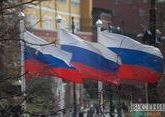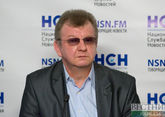This year has been declared by the UN the International Year of Indigenous Languages. At first glance, it seems that this is another for the record event because its main goal to draw attention to the possible loss of native languages and the need for their support. But languages play an important role in people's daily lives, and not only as an instrument of communication, learning, social integration and development, but also as a repository of each person’s unique identity, cultural history, traditions and memory, analyst of Vestnik Kavkaza Evgeniy Nikolaychuk said in the National Question program on Vesti.FM.
The expert noted that despite their tremendous value, languages around the world continue to disappear at an alarming rate. "According to the UN, of the 6,700 languages that currently exist in the world, 40% are on the verge of extinction, and only 4% of people speak Aboriginal languages. According to statistics, one of the languages dies every two weeks. This means that the cultures associated with them are also in danger.
One might think that this is happening somewhere overseas, but here, in Russia, everything is fine. But it is not. According to the Institute of Linguistics of the Russian Academy of Sciences, in our country, there are about 150 indigenous languages. According to the Federal Agency for Nationalities, more than 190 nationalities live in the country, 100 of which are indigenous peoples, and many of them, such as Mordvins, Karelians, were mentioned in ancient Russian books of the early 12th century. Throughout the centuries, they all manage to retain their culture, customs and languages," the analyst said.
According to linguists, over the past 150 years, 14 languages disappeared in Russia. Of these, five - already in the post-Soviet period. About 18 more languages are on the verge of extinction, that is, no more than 20 elderly native speakers are left. The main factor of the disappearance is that the language in families is no longer passed on to children, " Evgeny Nikolaychuk said.
According to him, that’s why the plan for the Year of Indigenous Languages includes more than 700 events that will be held at the federal and regional levels, and the first event of the Year of Indigenous Languages was the international forum in the Khanty-Mansiysk Autonomous Okrug - Yugra in March, which was attended by over 500 participants. International experts and UN representatives gathered to discuss the problems of preserving native languages. At the four thematic penals held on March 21-23, the forum participants discussed the best practices and projects to support mother llanguages, the Russian language and the languages of indigenous peoples, in particular, the role of information technology and the media in preserving and popularising the languages of the peoples of Russia.
In addition to the government policy, initiatives proposed by representatives of these peoples play a crucial role in preserving the languages and traditions of indigenous peoples, " Evgeny Nikolaychuk said, recalling that now, there is a trend - many indigenous peoples create their own schools to preserve or even revive their language.
“The situation with the Crimean population is indicative: in the first years after the historical referendum, many foreign media outlets, primarily Ukrainian, literally attacked Russia, accusing it of linguistic discrimination against small peoples living on the peninsula. The bet was made on the Crimean Tatar language, obviously, counting on the most acute reaction from its representatives, however, after Crimea entered the Russian Federation, in accordance with the Constitution of the Republic of Crimea adopted in April 2014, three official languages were proclaimed: Russian, Ukrainian and Crimean Tatar. Thus, the speculation in foreign media on this issue has virtually ceased, " the analyst said.










